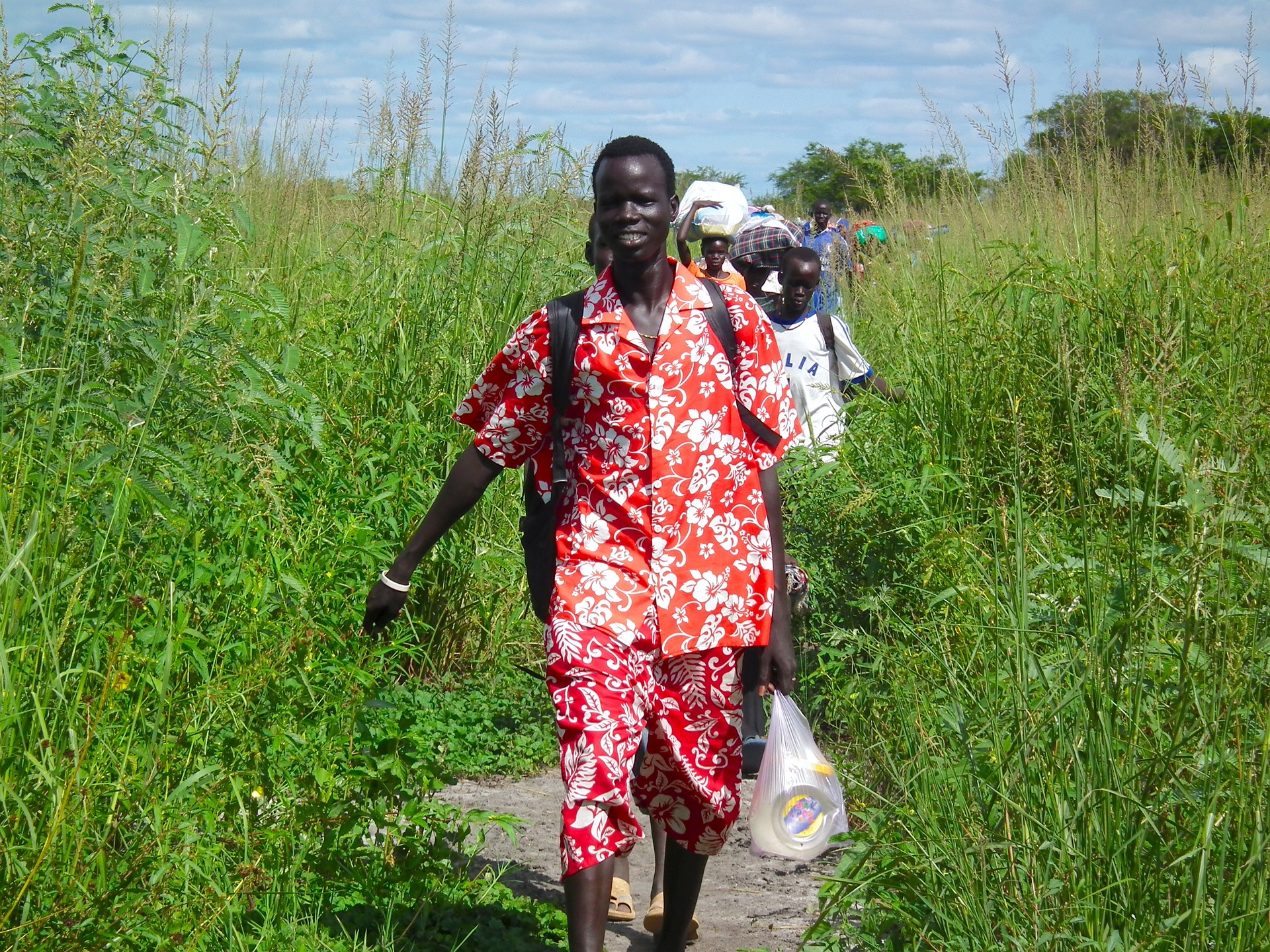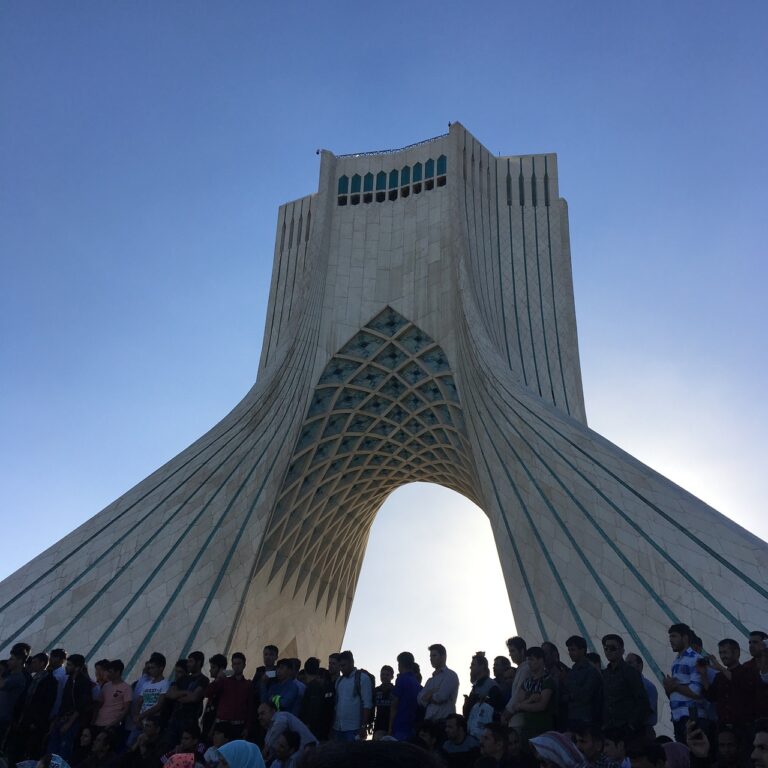
File photo of Sudan migrants
Jeddah: Representatives of the two warring military generals of Sudan signed a declaration of commitment to protect the civilians of Sudan on May 11, 2023, but fell short of declaring any ceasefire. The representatives of the Sudanese Armed Forces and the Rapid Support Forces signed the declaration at the Saudi foreign ministry office here in Jeddah.
The Declaration of Commitment recognises the obligations of both warring sides under international humanitarian and human rights law to facilitate humanitarian action to meet the emergency needs of civilians. It will guide the conduct of the two forces to enable the safe delivery of humanitarian assistance, the restoration of essential services, the withdrawal of forces from hospitals and clinics, and the respectful burial of the dead.
“So now that they have completed the affirmation of these principles and their willingness to cooperate with the international humanitarian community, they will then begin with the support of the Saudi and American mediators to negotiate an actual short-term ceasefire of – we set a goal of up to 10 days, but we’ll have to see what’s possible, to facilitate those activities I just described,” a senior US State Department official who was present on the occasion here, said today (IST). He informed that one important point that will be different from the earlier ceasefires that they tried to negotiate is that they have developed a ceasefire monitoring mechanism, which is being supported by the United Nations, the Saudis, and other members of the international community. ” So that mechanism will help hold the parties accountable to what they’ve agreed to do,” he said.
Following the signing, the ‘Jeddah Talks’ will focus on reaching an agreement on an effective ceasefire of up to approximately ten days to facilitate these humanitarian actions. The security measures will include a US- Saudi and international-supported ceasefire monitoring mechanism.
In line with the step-by-step approach agreed upon by the parties, the ‘Jeddah Talks’ will address proposed arrangements for subsequent talks – with Sudanese civilians and regional and international partners – on a permanent cessation of hostilities. In consultation with the Sudanese Armed Forces and the Rapid Support Forces, the facilitators – the US and Saudi Arabia – look forward to discussions with Sudanese civilians and regional and international partners about participation in subsequent rounds of talks.
Another senior United States State Department official present on the occasion said it was a document that the US and Saudi Arabia helped the warring sides negotiate. “It recognizes the obligations of both sides under international humanitarian and human rights law to facilitate humanitarian actions to meet the needs of civilians,” the official said. He clarified that this is not a ceasefire but an affirmation of their obligations under international humanitarian law, particularly with regard to the treatment of civilians and the need to create space for humanitarians to operate.
“The parties themselves said they wanted this kind of approach,” the official said. Offering details, the official said these talks actually began in discussions the Americans and the Saudis had with both the warring sides during the Eid al-Fitr period where just prior to the Eid, the African Union under the leadership of Chairperson Moussa Faki had reached out to the UN Secretary-General Antonio Guterres and other regional and international leaders to come together with a unified voice to press the parties for an Eid al-Fitr ceasefire.
Now the next step now would be to focus on negotiating specific security measures the two sides will take to create secure conditions for humanitarian assistance delivery, restoring essential services and burials. And then beyond that would be the discussion of what the next round of talks could look like.
Incidentally, of late there had been a quotient of criticism in Washington from the likes of former Special Envoy Jeffrey Feltman that the US had badly mishandled the options over the last several years and that the US State Department and the White House has outsourced some of its policies to the United Arab Emirates and Saudi Arabia.
However, a US State Department official today claimed that the US policy for decades “has really been singular”, and focused on helping the civilians of Sudan resist and overcome Islamic dictatorships and military authoritarianism.
“We have often focused on folks who live in the peripheries. That’s a term that people use to describe communities that are not in the capital. And that also led to the establishment of South Sudan. So, and I are in a long line, a proud line, of American officials from different agencies who have stood by the side of the Sudanese people and used US power and influence to press the generals to respond to the aspirations of the Sudanese people,” the official said.
It may be mentioned that the Sudanese military first took power in 1958 and has effectively controlled the country since then, including for 30 years under the Omar al-Bashir regime, where there was effectively an Islamic dictatorship. Ten years ago, Bashir established the Rapid Support Forces as a paramilitary force.
In 2019 when the Sudanese demanded democracy, the US mobilised to assist them. In October 2021, when the two leaders, General Abdel Fattah Abdelrahman al-Burhan of the Sudanese Armed Forces and General Mohamed Hamdan Dagalo generally referred to as Hemedti of the Rapid Support Forces, deposed the civilian prime minister, the United States mobilized economic pressure on the generals. “We arranged for the suspension of significant debt relief. Sudan had been under an enormous burden of debt accrued during the Bashir era, of about $23 billion. We suspended all lending from international institutions – from the IMF, the World Bank, and the African – development programme – hundreds of millions of dollars that had been designated for Sudan after the resolution in 2019. And we organized the suspension of bilateral development assistance from the United States and all of our partners. So, frankly, I find it confusing when we’re told that we haven’t been pressing the generals. Again, this is a long line of US policy to push. Our engagement with them has been nothing but pushing them to respond to the aspirations of the people,” the US State Department official said.
– global bihari bureau





